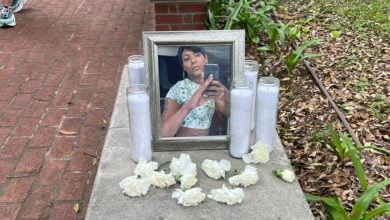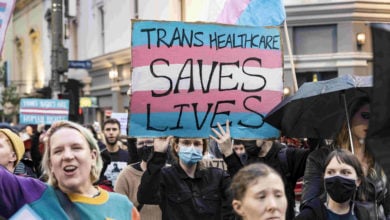The Maryland House of Delegates recently acted to effectively delay passage of the Civil Marriage Protection Act for the remainder of the year. If passed, the bill would repeal the state’s 1973 statute defining marriage between “one man and one woman” and allow same-sex partners equal marriage rights.
After the measure narrowly passed in the State Senate, the House of Delegates acted to delay voting on the measure before sending it back to committee on March 11, effectively ending all debate for the remainder of the legislative year, which ends next month. The measure will not be taken up again until January 2012 at the earliest.
As the demands for same-sex marriage rights have grown stronger across the country in recent years, governments from the local to the federal level have been unable to continue ignoring the people’s demands from the streets. In response, measures in favor of same-sex marriage rights have increasingly been introduced in the legislative and judicial systems.
In Maryland in 2004, the American Civil Liberties Union and the LGBT rights advocacy organization Equality Maryland jointly filed a lawsuit on behalf of same-sex couples seeking to extend equal marriage rights to all people.
In response, bigoted legislators opposed to marriage equality introduced repeated amendments to the state’s constitution narrowly defining marriage as only between a man and a woman.
Starting in late 2006, the Maryland Court of Appeals heard oral arguments on the issue, but ultimately ruled against same-sex marriage rights in a 4-3 decision the following year.
In 2008, and again in 2009, bills supporting same-sex marriage rights were introduced in both the House of Delegates and the State Senate. While those bills were ultimately defeated, two additional pieces of legislation extending some limited rights to same-sex couples were later passed in the State Senate. SB 566 extended 11 protections for same-sex partners, including hospital visitation and funeral preparation rights. SB 597 extended untaxed home ownership rights to same-sex couples. While both bills do represent progress, they are still far from the ultimate goal of full equality.
Maryland Democrats go along with reactionary agenda
The Maryland House of Delegates sent the Civil Marriage Protection Act back to committee following a contentious series of arguments.
Gov. Martin O’Malley had pledged to sign the bill if it were to reach his desk. When the State Senate unexpectedly passed the measure by a narrow margin of 25 to 21 on Feb. 24, reactionary organizations such as the Family Research Council and the National Organization for Marriage began to mobilize against passage in the House of Delegates.
The National Organization for Marriage announced plans to spend up to $1 million to support Democrats opposed to the bill, and to defeat the one Republican in favor of it, Sen. Allan Kittleman.
The state’s Democrats in the House of Delegates unwillingness to fight for LGBT rights could not have been more apparent. While only 71 votes were required to pass the act and Democrats hold 98 of the 141 seats, nearly a third of the Democrats opposed it. During the debates, many Democrats descended into outright homophobic tirades, claiming non-heterosexual relationships were “unnatural” because they were unable to produce children.
Democratic Delegate Emmett C. Burns of Baltimore said same-sex marriage violates natural law because “it does not create a family but a naturally sterile union.” (New York Times, March 11)
Even some Democratic co-sponsors of the bill eventually caved in to the pressure of reactionary organizations, delaying committee votes and even skipping sessions to avoid negative political fallout potentially harmful to their careers.
Regardless of the results this year, the LGBT community in Maryland refuses to remain an oppressed group of second-class citizens and has vowed to continue fighting until justice is finally delivered. Ultimately the issue will not be decided by the legislative and judicial systems, but by the people in the streets.





